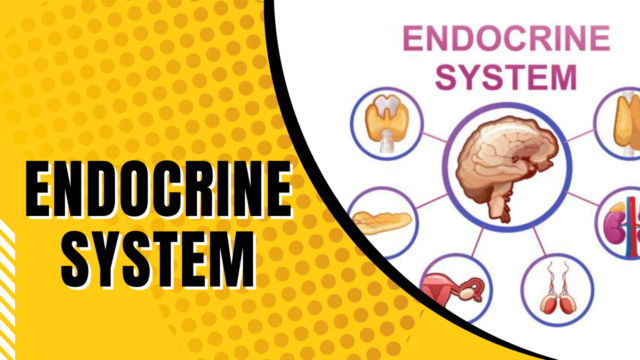The Endocrine System

The endocrine system is a complex network of glands and organs that produce and release hormones into the bloodstream. These hormones act as chemical messengers and regulate various functions and processes in the body. The endocrine system plays a vital role in maintaining homeostasis, growth and development, metabolism, reproduction, and response to stress.
Here are some key components and functions of the endocrine system:
- Glands: The endocrine system consists of several glands located throughout the body. These include the pituitary gland, thyroid gland, parathyroid glands, adrenal glands, pancreas, ovaries (in females), and testes (in males). Each gland produces specific hormones that serve various functions.
- Hormones: Hormones are chemical substances secreted by the endocrine glands into the bloodstream. They travel to target cells or organs and bind to specific receptors, triggering specific physiological responses. Hormones regulate a wide range of processes, including growth and development, metabolism, sexual function, mood, and stress response.
- Pituitary gland: Often referred to as the “master gland,” the pituitary gland is a small, pea-sized gland located at the base of the brain. It produces and releases several hormones that control the activities of other endocrine glands in the body. The pituitary gland is divided into two parts: the anterior pituitary and the posterior pituitary, each responsible for releasing different hormones.
- Thyroid gland: The thyroid gland is located in the neck and produces hormones that regulate metabolism and growth. The primary hormone produced by the thyroid gland is thyroxine (T4), which is converted into triiodothyronine (T3) in the body. These hormones help regulate body temperature, heart rate, energy production, and the function of other organs.
- Adrenal glands: The adrenal glands are situated on top of the kidneys. They produce hormones such as cortisol, aldosterone, and adrenaline (epinephrine) that are involved in stress response, blood pressure regulation, metabolism, and electrolyte balance.
- Pancreas: The pancreas serves both exocrine and endocrine functions. Its endocrine function involves the production and release of hormones, primarily insulin and glucagon, which are essential for regulating blood sugar levels and metabolism.
- Reproductive glands: In females, the ovaries produce estrogen and progesterone, which regulate menstrual cycles, pregnancy, and the development of secondary sexual characteristics. In males, the testes produce testosterone, which is responsible for the development of male reproductive organs and secondary sexual characteristics.
- Feedback mechanisms: The endocrine system operates through a series of feedback mechanisms to maintain hormone balance in the body. These feedback loops involve communication between various glands and organs to regulate hormone production and maintain homeostasis.
Disruptions or imbalances in the endocrine system can lead to various disorders, such as diabetes, thyroid disorders, adrenal insufficiency, and reproductive hormone imbalances. Medical professionals specializing in the endocrine system, known as endocrinologists, diagnose and treat these disorders using a combination of medical interventions, lifestyle modifications, and hormone replacement therapies.









